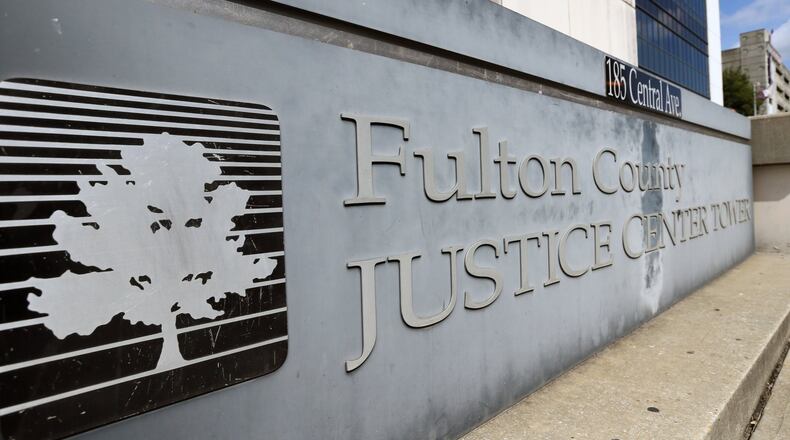Thousands of eviction cases in metro Atlanta will remain on hold as officials in the region’s largest counties ruled this week to suspend in-person eviction hearings for at least another month.
While a recent statewide order gives local courts the discretion to resume those hearings if they choose to, Fulton, DeKalb, Gwinnett and Cobb counties will not conduct the landlord-tenant hearings in courtrooms this month, according to orders from each court. Fulton, usually considered the state’s busiest eviction court, said it will not resume in-person court dates until at least November.
Cobb County initially planned on resuming eviction hearings this week, starting with cases that had begun before the pandemic hit. But in a letter Wednesday, Chief Magistrate Judge Brendan Murphy wrote in a letter that “since that decision was made, the COVID-19 situation in our county has significantly changed.”
Coronavirus cases have gone up in Cobb — and across the metro area — in recent weeks. Last Thursday, a Magistrate Court staff member tested positive for COVID-19, Murphy said. The following day, officials said nine employees across the Cobb court system had tested positive.
Landlords can still file for eviction against tenants during the pandemic. Fulton County’s Chief Magistrate Judge Cassandra Kirk wrote in a recent order that 6,500 evictions have been filed since mid-March, and an additional 2,500 cases were pending before the pandemic hit. Cobb said it has more than 1,000 pending landlord-tenant cases that need to be addressed, while nearly 2,000 new eviction cases have been filed in DeKalb since mid-March.
A tenant cannot be legally evicted and removed from their home, however, until their case goes through the court system and a judge formally rules the eviction can take place.
Lindsey Siegel, an attorney for Atlanta Legal Aid, welcomed the extended hold on in-person hearings.
“We’ve been very concerned that no matter what additional protections courthouses put in place, just getting people into a space where there’s not a lot of ventilation and there’s more than one case being heard at a time … all of that puts people at risk,” Siegel said. Atlanta Legal Aid represents low-income clients in court cases, including many facing eviction.
While Fulton officials said they do not plan to hold in-person eviction hearings until at least Nov. 2, it would offer virtual hearing options starting in August, Kirk said. However, both the landlord and tenant must agree to the virtual hearing in order for the case to move forward.
Siegel said the virtual hearings will lead to many cases being swiftly and mutually resolved. The new rules also give tenants more time to pay back rent, collect overdue unemployment benefits or receive rental assistance if they do not want to do a virtual hearing.
Murphy, meanwhile, said Cobb is “not equipped” to handle eviction cases virtually since it is prioritizing its technology for “essential functions.” He wrote the court would allow landlords to file motions to have a hearing on “extraordinary” cases, which would include allegations of destruction of property or a tenant staying after their lease ends.
Officials in Gwinnett and DeKalb counties said eviction hearings are suspended until at least August. They have not indicated whether virtual hearings will be an option.
Siegel said the recent statewide judicial order did not extend the filing deadlines for evictions, meaning tenants served with an eviction notice since mid-March have until early next week to file their formal answer or response.
In a joint statement Thursday, the Fulton County marshal and Magistrate Court said that starting in mid-August, officials planned to execute hundreds of evictions that had been ruled on before the pandemic hit.
Housing advocates have called for stays on evictions during the pandemic. Many worry a wave of evictions could strain the region’s resources and lead to a crisis surrounding housing and homelessness.
“I think it’s going to be incredibly disruptive for our communities. Every time a family is evicted, it has a massive impact on the community,” Siegel said. “We’re very concerned about all the evictions that we think will happen at some point.”
In the city of Atlanta, Mayor Keisha Lance Bottoms recently signed an executive order calling on properties subsidized by governmental and quasi-governmental agencies to not file evictions. The federal government has also barred properties that have federally-backed loans or receive many types of federal housing subsidies from pursuing eviction over nonpayment of rent.
About the Author
The Latest
Featured



